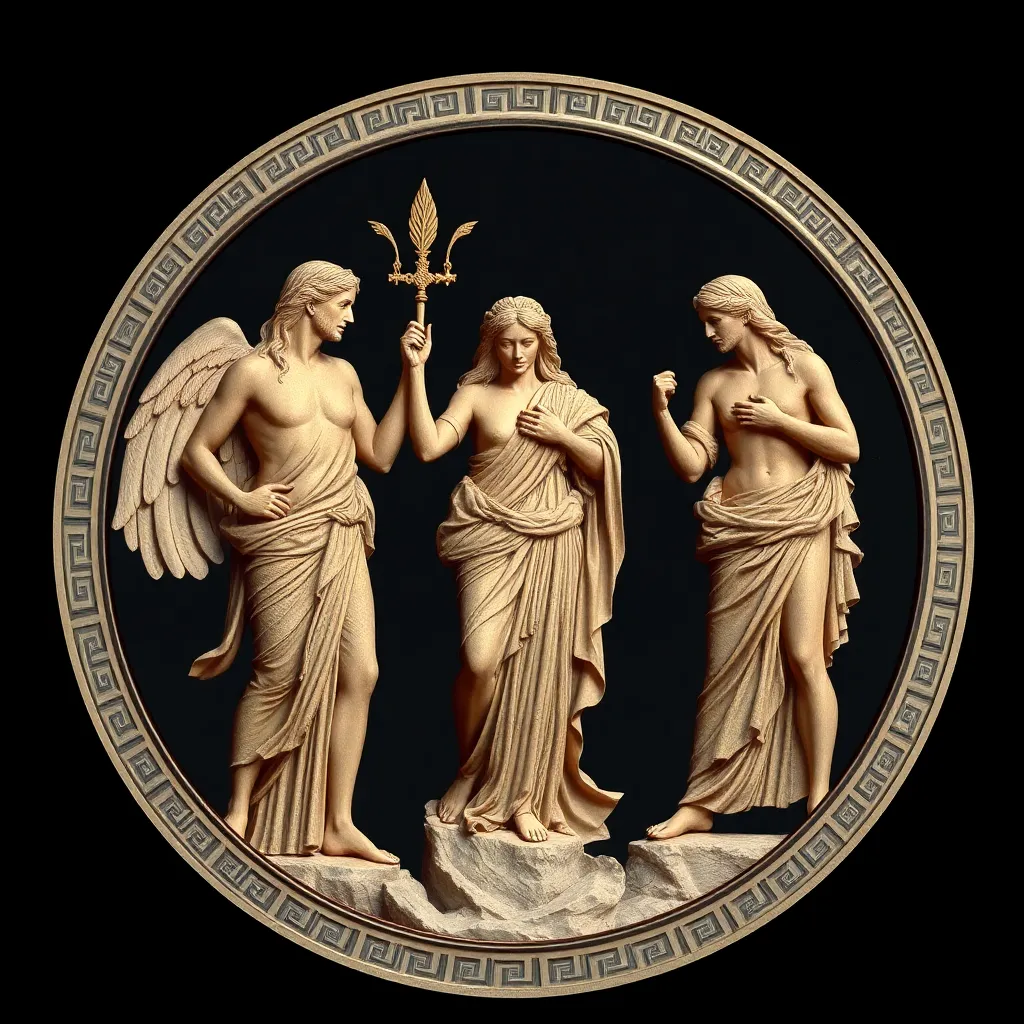The Myths of Hera and Their Connection to Ancient Greek Ethics
I. Introduction
Hera, the queen of the gods, holds a prominent place in Greek mythology as the wife of Zeus and the goddess of marriage and family. Her myths provide a rich tapestry of stories that reveal the complexities of her character and the ethical dilemmas faced by the gods and mortals alike. Understanding these myths is crucial for examining the moral framework of ancient Greek society.
This article aims to explore Hera’s role in mythology and how her stories reflect the ethical values of the time. By analyzing her major myths, we can uncover themes of loyalty, jealousy, and justice that resonate with human behavior both in ancient times and today.
II. Hera: The Queen of the Gods
Hera is often depicted as a majestic and regal figure, embodying the ideals of marriage and fidelity. She is associated with several symbols, including the peacock, which represents beauty and pride, and the pomegranate, a symbol of fertility and abundance.
As the queen of the Greek pantheon, Hera plays a critical role in the divine hierarchy. She is both a protector and a challenger, often standing in opposition to Zeus’s numerous affairs and the offspring produced from them. This duality makes her a complex figure in the mythology.
The symbolism associated with Hera extends beyond her divine role. She represents the institution of marriage and the challenges that come with it, reflecting the societal expectations of women in ancient Greece.
III. Major Myths Involving Hera
Several myths highlight Hera’s character and her interactions with other deities and mortals. Some of the most notable include:
- The story of Heracles and his twelve labors: Hera’s jealousy toward Heracles, the son of Zeus and the mortal Alcmene, leads her to make his life difficult. She sends serpents to kill him as a baby and later instigates challenges that he must overcome as part of his labors.
- The myth of the Trojan War: Hera plays a significant role in the events leading up to and during the Trojan War. Her rivalry with other goddesses, particularly Aphrodite, over the golden apple leads to the conflict that ultimately results in war.
- Hera’s jealousy: Many myths emphasize Hera’s jealousy, particularly in relation to Zeus’s infidelities. Her vengeful actions against Zeus’s lovers and their offspring showcase her fierce nature and the consequences of betrayal.
IV. Ethical Themes in Hera’s Myths
The myths surrounding Hera often illustrate profound ethical themes that resonate throughout Greek culture:
- Loyalty and betrayal: Hera’s loyalty to marriage stands in stark contrast to Zeus’s repeated betrayals, raising questions about fidelity and the moral implications of infidelity.
- The consequences of jealousy and vengeance: Hera’s jealousy often leads to severe repercussions for those she targets, illustrating the destructive nature of envy and the moral lessons that stem from it.
- Justice: Hera’s actions can also be interpreted as a pursuit of justice, particularly when she punishes those who wrong her or violate the sanctity of marriage. This reflects the ancient Greek understanding of retribution and moral order.
V. Hera’s Influence on Greek Society
The myths of Hera offer significant insights into the values and ethics of ancient Greek society:
- Societal values: Hera’s stories reflect the importance placed on marriage and family, as well as the expectations for women to uphold these institutions.
- Role of women: Hera embodies the complexities of womanhood in ancient Greece, serving as both a moral exemplar for fidelity and a cautionary figure whose jealousy leads to chaos.
- Moral lessons: Through her actions, Hera teaches lessons about the consequences of jealousy, the importance of loyalty, and the nature of justice, all critical aspects of Greek ethics.
VI. Comparisons with Other Deities
Hera’s character can be contrasted with other prominent goddesses in Greek mythology, such as Athena and Aphrodite:
- Athena: Unlike Hera, who often embodies jealousy and vengeance, Athena represents wisdom and strategic warfare, providing a different ethical perspective on conflict.
- Aphrodite: While Hera is concerned with loyalty and fidelity, Aphrodite embodies love and desire, showing how different divine figures can teach varying moral lessons.
- Broader implications: These comparisons highlight the multifaceted nature of Greek morality, where different deities represent various ethical dilemmas and solutions.
VII. Modern Interpretations of Hera’s Myths
In contemporary society, Hera’s character has been reinterpreted in various ways:
- Contemporary views: Modern interpretations often view Hera through a lens of feminism, analyzing her struggles and the constraints placed upon her by a patriarchal society.
- Relevance today: The ethical themes found in Hera’s myths—such as loyalty, jealousy, and the quest for justice—remain relevant and resonate with modern audiences, prompting discussions about human behavior and relationships.
- Modern storytelling: Films, literature, and art continue to draw inspiration from Hera’s myths, reimagining her character and the ethical lessons derived from her stories.
VIII. Conclusion
In conclusion, Hera’s myths provide a profound exploration of ethical themes that are essential for understanding ancient Greek society and its moral framework. Her character embodies both the challenges and expectations of women, particularly in the context of marriage and fidelity.
The lasting legacy of Hera’s myths continues to influence discussions of ethics, loyalty, and justice in modern contexts. As we reflect on these tales, we gain insights into human behavior, the complexities of relationships, and the timeless nature of moral dilemmas.
Ultimately, the study of mythology, particularly the myths of Hera, remains vital for comprehending the intricacies of human ethics and the enduring nature of the stories that shape our understanding of morality.




